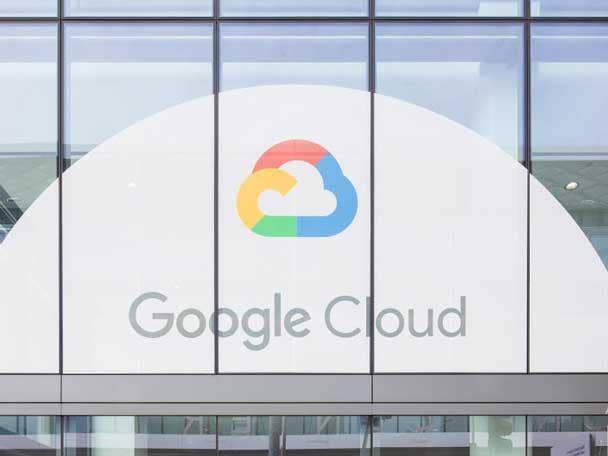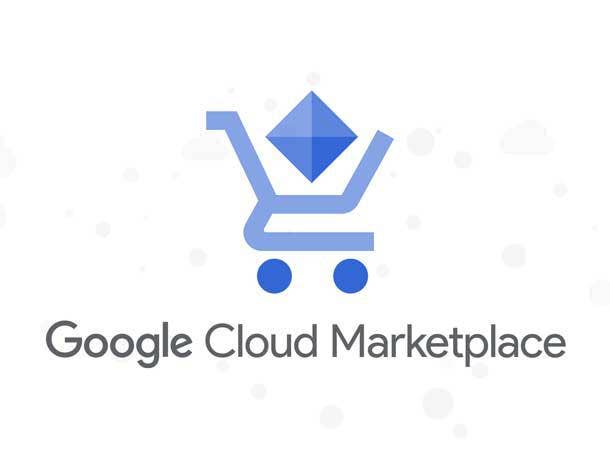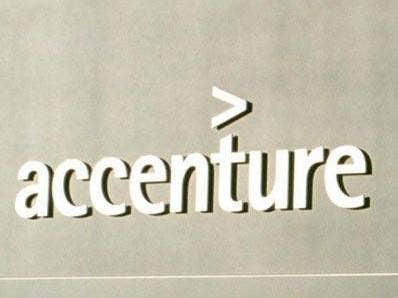Accenture: Google ‘Wins In Data’; Big Plans For Google Cloud Marketplace
Tom Stuermer, head of Accenture’s Google Cloud business, explains to CRN Google Cloud’s market differentiation and Accenture’s plan to drive business via the Google Cloud Marketplace.

Global IT superstar Accenture is doubling down on Google Cloud in 2023 and putting more custom solutions on the Google Cloud Marketplace as the cloud giant pushes partners to sell more via the Marketplace by launching new capabilities.
Tom Stuermer, global senior director of Accenture’s entire Google Business Group, said Google Cloud’s data differentiation, momentum in winning new cloud-native customers, and cybersecurity focus has Accenture bullish about 2023.
“Google wins in data. They have a really compelling story around data. When I see them competing in the marketplace, it’s one place where they become a bit of a disrupter even if there’s an incumbent,” said Stuermer.
“The Mandiant acquisition in the brand recognition now pulls them into C-suite relevancy very immediately in that security topic,” Stuermer added.
[Related: 10 New Google Cloud Programs, Certs, Incentives For Partners In 2023]
Google Cloud Marketplace
Stuermer’s career with Accenture spans nearly 30 years, holding many global management roles including global managing director of Accenture’s ecosystem partnerships.
Accenture is a $62 billion technology leader, ranking No. 1 on CRN’s 2022 Solution Provider 500 list, and is one of the largest Google Cloud partners on the planet with thousands of dedicated Google professionals inhouse.
One massive opportunity ahead for Accenture this year is the Google Cloud Marketplace.
Last week, the Mountain View, Calif.-based cloud company launches new capabilities and features to enable partners to sell more custom and private offerings on Google Cloud Marketplace.
“If I go back a year ago, the Marketplace was really good at small grain services that can be consumed in a very predictable way, like API’s or very discrete things that customers might consume. But it wasn’t very useful for what I would call larger grain solutions, like industry solutions and infrastructure solutions,” said Accenture’s Stuermer, who runs an organization of over 5,000 people.
“The bespoke custom offerings that have been deployed now allow us to have very elegant and complex business outcomes solutions that we will put into the Marketplace,” he said. “So we’ve got solutions in multiple industries now we’re honing in it. We’re deploying those into the Marketplace as we speak. … We truly feel like we got a special partner here.”
Stuermer talks to CRN about Accenture’s bullish thoughts on Google Cloud and plan this year to drive sales via the Google Cloud Marketplace.

As 2023 begins, where is Google Cloud winning and what are your bullish thoughts?
My observation is Google wins in data. They have a really compelling story around data.
When I see them competing in the marketplace, it’s one place where they become a bit of a disrupter, even if there’s an incumbent in some other area.
They’ve got the moral authority, the technical authority, and the way they’re thinking about being open and recognizing and acknowledging that every client is a multi-cloud client—I think puts them in a really compelling position. I think we’re going to see more and more growth there in 2023.
Also in cybersecurity, the ability to mobilize Mandiant to mobilize a lot of what they’ve got with Chronicle and Siemplify, you’re going to see some things coming up imminently around that.
Google has weathered some of the most significant distributed denial of services attacks that have been levied against anybody and have yet to be materially breached.
Their story about Google themselves around, ‘Don’t you want to be like us when it comes to security?’ is another one that’s pretty compelling.
The Mandiant acquisition in the brand recognition now pulls them into C-suite relevancy very immediately in that security topic. I know it’s a big investment area. [Google Cloud CEO] Thomas [Kurian] has been talking about it quite a bit, including in the most recent analysts call.
By the way, [Mandiant] has an awful lot of data that’s addressed from that and better AI makes the detection much more effective, etc. I think those are going to be two really compelling areas.
The third area is, don’t sell short how strong Google is with cloud-natives in their ability to win over getting cloud-native companies to move their entire portfolio on to GCP.
I think what’s happening with the Marketplace makes that even more compelling, because they now have—not only a different channel—but they have the means to start to get integrated into other more complex things like with some of Accenture’s solutions.

What is one large market differentiator that the Google Cloud Marketplace has right now?
The brilliance of what [Google Cloud] has pulled together is that now when we put Accenture’s solution in the Marketplace, customers can draw down consumption against their [cloud spending] commit—not only for the pieces that we had built, but also for the services we provide, and any other third party technology that we pull into it.
That is massively different than anything I’ve ever seen before in my career.
It creates a totally different dynamic in the selling motion with the Google sellers, with the customers who want to run things in their own premise, etc.
We’ve long wrestled with those kinds of problems, when we have an Accenture solution that runs in one place and a customer solution in another place. Now we can kind of pull those boundaries together and break a lot of those barriers.
What we’re in the process of doing right now, is actually getting our solutions locked-in on the Marketplace to be consumable.
Because the custom/private offerings is a fairly new thing, so we’ve been essentially selling these along the side. Now what we’re doing is commercially leaking them into the Marketplace agreements, so that we can post them up that way.
We’re now finding ways to commercially flip our solutions over to the Marketplace.
Google Cloud Marketplace just launches new capabilities for partners to drive more private, custom offers and accelerating onboarding. What is the Accenture plan in 2023 on the Google Cloud Marketplace?
Google Cloud has been scaling up the Marketplace.
If I go back a year ago, the Marketplace was really good at small grain services that can be consumed in a very predictable way, like API’s or very discrete things that customers might consume.
But it wasn’t very useful for what I would call larger grain solutions, like industry solutions and infrastructure solutions, that need to be prefigured based on the customer’s existing state and their objectives and what they already have and maybe don’t have.
The bespoke custom offerings that have been deployed now allow us to have very elegant and complex business outcomes solutions that we will put into the Marketplace.
So we’ve got solutions in multiple industries now we’re honing in it. We’re deploying those into the Marketplace as we speak, including things like security; specific data solutions in consumer goods and retail; we have our Intient life sciences solutions that we are now putting it into the Marketplace.
So we didn’t have the means to take these more elegant business outcomes solutions to the Marketplace because everyone was a little bit bespoke in what the customer wanted and what scope they needed. We needed to be able to have that flexibility.

What’s Accenture’s Google Cloud Marketplace strategy for 2023?
We are codifying our solutions into consumable Marketplace elements that a customer can buy a data migration ready platform with all of the services that we’ve assembled around it.
Our industry-specific data layer allows us to rapidly start to migrate customers. So we can now get a data migration ready environment in about four to six weeks. This used to take like 16 to 72 weeks long.
It’s having that bottom level infrastructure plus data pipelines, data governance, data validation—all of these tools that allow us to do large scale integration.
What’s a good recent use case?
We just recently completed a seven-petabyte data migration at one of our customers in the US.
We’re just getting started, there’s dozens of data lakes left to go. This is sort of like the first big chunk. It’s not about just building that migration, but we we’ve taken a lot of lessons and automation from examples like that to create this data specific set of landing zones.
Getting infrastructure in place and being able to migrate apps is kind of helpful, but being able to get a data platform in place, and have 7-petabytes of data helps our clients to build what we call a digital core inside of Accenture.
With this particular customer, they can now actually create customer insights across what was previously dozens of data lakes that were separated. They don’t just get insights about those customers, but now they can launch new businesses, and they have an agility around that data to be able to make it happen.
What we found in another company in the same industry in Europe, they are now able to deploy industry specific AI models with an 80 percent efficiency. So now in 20 percent of the time that it used to take them to be able to deploy new machine learning models on all of this data, they can now do that based on some of the work that we’ve pulled together.

Google Cloud’s Kevin Ichhpurani
What new go-to-market strategy is Accenture most excited about this year regarding the Google Cloud Marketplace?
We are the most excited about is creating functional and industry data solutions.
So retail is a good example. We are pulling together not only a retail-specific data model, building it on Cortex—which is the open standard that Google has— then expanding it. We have prebuilt use cases around machine learning and advanced analytics for retail, looking at things like demand shaping and demand forecasting.
We’re also pulling in pieces of Alphabet around commerce—like closed loop commerce, first party data, and the ability to do targeted marketing.
We’re pulling these together into industry conglomerated solutions that allow us to solve problems that aren’t even just GCP specific, but have the extra sauce of what Alphabet can do.
Then pulling these together in a consumable way that takes advantage of these open standards, takes advantage of all the automation we built, and can solve some of these customer problems very, very rapidly.
What Google Cloud Marketplace improvements are helping Accenture drive customer sales and success?
One big thing is being able to pull ISVs—like in security, Palo Alto Networks is a good example—into part of our solution.
We were both in the Marketplace, but now we can actually consolidate those into one offer. That’s a pretty big deal for us to be able to do that. And it’s fairly unique in in Google’s Marketplace approach.
Another big thing that [Google Cloud’s global partner ecosystem leader] Kevin Ichhpurani has been integral in, is Google’s both product and ecosystem position around being open.
I don’t mean that just by being open standards, but things like the Cloud Data Alliance, like the Google Cloud Cortex [Framework] which is sort of a GitHub open data standard for enterprise data that allows all of us an ecosystem to build the same set of standards. So that when we do have something on the Marketplace, we can consume data from the data marketplace, like third party data, that we can populate into these solutions.
We can interact with other providers, like for example supply chain companies like o9 Solutions, and Kinaxis, that have built to those standards as well.
It allows us as a set of ecosystem partners to actually deploy things in a predictable way because we know that those standards are being honored.